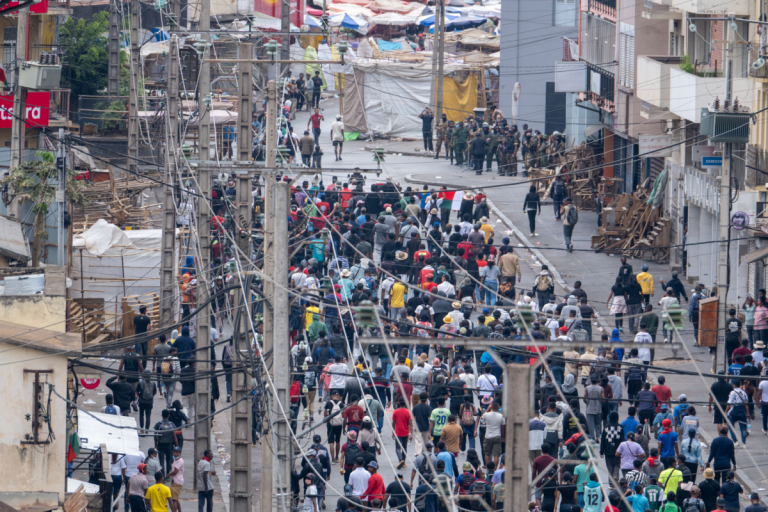Youth Movement Rejects President’s Response
Police in Madagascar have fired tear gas to disperse protesters in the capital Antananarivo, as youth-led demonstrations continued despite President Andry Rajoelina dissolving his government. The so-called Gen-Z protests, sparked by repeated power and water cuts, have mobilized thousands across at least eight cities since last week.
On Monday, Rajoelina announced the dismissal of his prime minister and cabinet, promising dialogue with young people and pledging a new government within days. However, protesters rejected his statement as insufficient, demanding accountability for lives lost during the unrest and for the president himself to step down. A post on the movement’s Facebook page called for an apology and responsibility after security forces’ crackdown left dozens dead.
Heavy Security and UN Condemnation
Authorities imposed a dusk-to-dawn curfew in Antananarivo after reports of looting and violence, with police deploying rubber bullets and tear gas. The United Nations said at least 22 people had been killed and more than 100 injured, accusing security forces of using unnecessary and disproportionate force.
UN human rights chief Volker Türk expressed shock over reports of arrests, beatings, and live ammunition used against demonstrators. “I urge the security forces to desist from the use of unnecessary force and to immediately release all arbitrarily detained protesters,” he said.
Madagascar’s foreign ministry rejected the UN’s figures, claiming they were based on “rumours or misinformation,” while maintaining that the situation was under investigation. Nonetheless, images from the protests show masked demonstrators holding signs marked “Gen Z” and women marching with placards demanding basic rights.
Protests Spread Beyond the Capital
What began as peaceful demonstrations in Antananarivo has expanded nationwide, fueled by anger at infrastructure failures and government inaction. Many protesters say power cuts and water shortages have paralyzed daily life, while some allege paid agitators were deployed to discredit their cause through looting and arson.
Despite the president’s dismissal of his energy minister last week, the rallies intensified, reflecting deeper frustration with governance. Protesters argue that reshuffling ministers is not enough, and banners carried in the capital read: “We don’t want trouble, we just want our rights.”
Historic Patterns of Unrest
Madagascar has a long history of political turbulence, including mass demonstrations in 2009 that ousted then-president Marc Ravalomanana and brought Rajoelina to power. Since then, the country has faced recurring political crises alongside chronic poverty, making it one of the world’s most fragile states.
The current protests represent the most significant challenge Rajoelina has faced since securing a third term in 2023 amid allegations of irregularities. For now, his government remains in transition, but protesters say the reshuffle does not address their core demands for accountability and reliable basic services.


